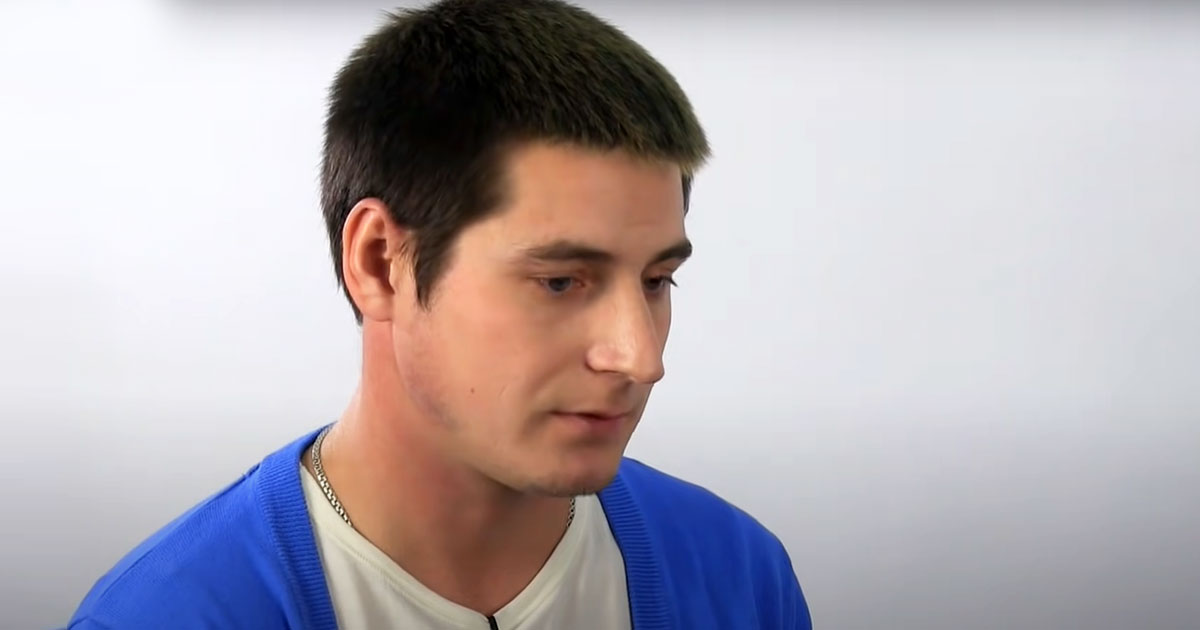Chechnya found guilty of torturing man in ‘gay purge’

Maxim Lapunov endured almost two weeks of physical and psychological abuse in Chechnya for being gay (Novaya Gazeta /YouTube)
The European Court of Human Rights (ECHR) has ruled that a gay man was indeed a victim of Chechnya’s brutal anti-gay purge in 2017, an event that was covered up by Russia.
Background: Anti-Gay Purge in Chechnya
In April 2017, reports emerged about the widespread persecution of LGBTQ+ individuals in Chechnya, a semi-autonomous Russian republic. Numerous queer men were rounded up, detained, tortured, and, in some cases, killed by Chechen authorities.
Maxim Lapunov is the sole survivor known to have come forward at great risk to openly demand justice for his ordeal. When both Chechen and Russian authorities declined to open a case, he turned to the ECHR.
The court has now determined that Maxim Lapunov endured unlawful detention and torture by state agents in Chechnya because of his sexual orientation. The court also concluded that the investigation into the matter was inadequate.
Maxim Lapunov’s Account
Born in Russia, Lapunov moved to Chechnya in 2015, where he operated an event planning business and sold party balloons. After a friend was abducted on March 6, 2017, by unknown individuals, Lapunov reported the incident to local authorities.
A few days later, while selling balloons in Grozny, the capital of Chechnya, Lapunov was forcibly taken by police officers. They accused him of murder and discovered text messages on his phone that revealed his homosexuality. Lapunov was subjected to physical abuse by the officers, which escalated when he refused to disclose information about other gay individuals.
Lapunov was later coerced into arranging a meeting with a gay acquaintance over the phone. Both he and his acquaintance were detained and placed in adjacent cells in the police building’s basement, enduring deplorable conditions and further beatings.
During his detention, Lapunov witnessed severe abuse inflicted on others and even observed the murder of another detainee. On March 28, he was threatened, compelled to handle a gun, and coerced into signing documents under duress. His fingerprints and signatures were collected on various documents.
Following his release, Lapunov left Chechnya out of fear for his safety. Despite medical experts confirming that his injuries were consistent with abuse, Russian investigators repeatedly declined to open a criminal case, citing insufficient evidence. After two appeals to Russian courts to initiate a criminal case were rejected, Lapunov left Russia.
ECHR’s Ruling and Compensation
In its September 12 ruling, the ECHR determined that “the ill‑treatment to which the applicant was subjected by State agents between 16 and 28 March 2017 amounted to torture” and was “solely on account of his sexual orientation.”
The court also found that the investigation into Lapunov’s allegations of ill-treatment “was ineffective, as it was plagued by serious shortcomings, lacked independence and failed to properly take into account and investigate possible discriminatory motives.”
Russia has been ordered to pay Lapunov 52,000 euros in damages, an amount unlikely to be paid, according to Tanya Lokshina, Associate Director of the Europe and Central Asia Division at Human Rights Watch.
“After Russia’s full-scale invasion of Ukraine, Russia lost its Council of Europe membership and there is no hope that the Russian authorities will implement this ruling anytime soon,” she said, “Yet it sets the record straight. This, I hope, will serve to support all survivors of the purge.”
In March 2022, Magomed Tushayev, a general said to have been behind the torture and murder of LGBTIQ people in Chechnya, was killed in Russia’s invasion of Ukraine.
Leave a Reply